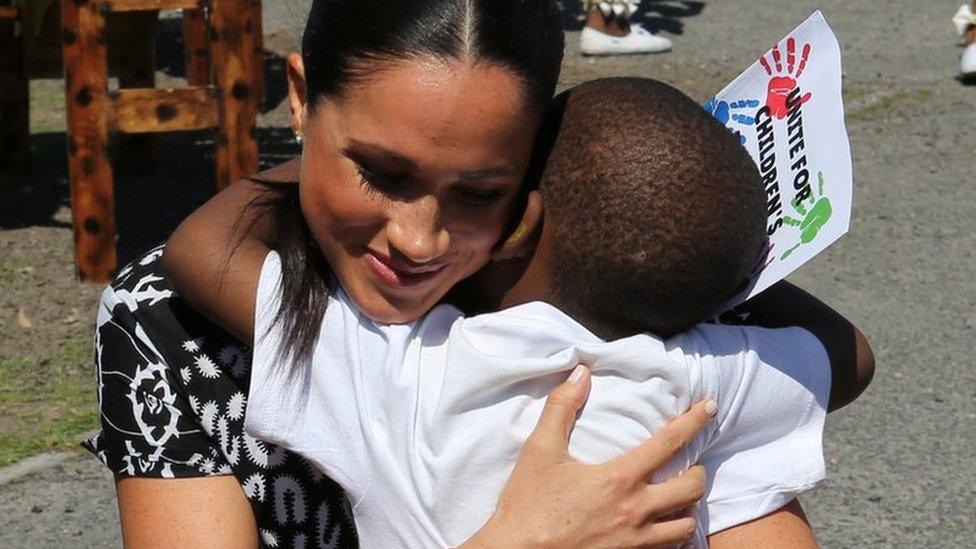Meghan meets 'remarkable' female leaders in South Africa
- Published
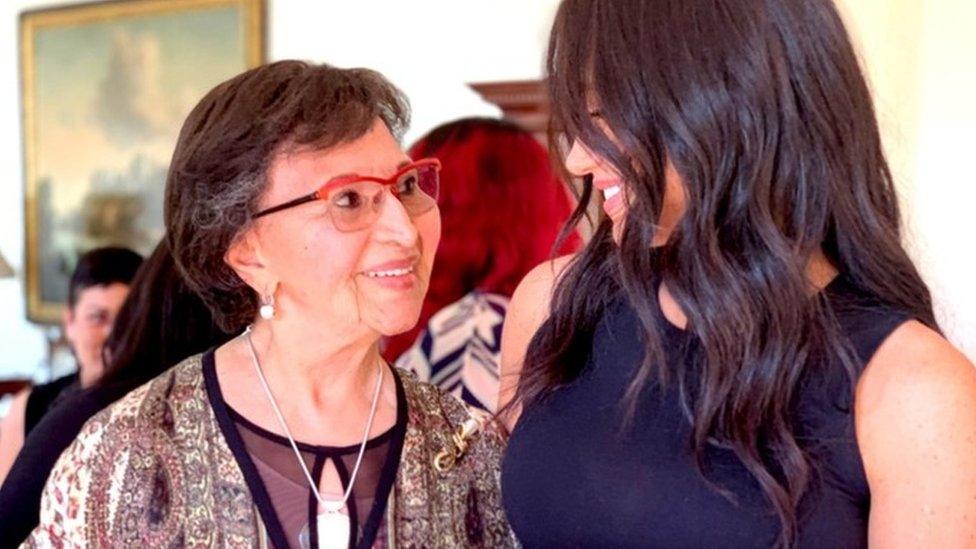
Sophia Williams-De Bruyn was aged 18 when she helped lead about 20,000 protesters
The Duchess of Sussex has described meeting one of the founding members of South Africa's anti-apartheid movement as an "incredibly powerful moment".
Sophia Williams-De Bruyn was 18 when she led about 20,000 women on a march against racial segregation in 1956.
Meghan met the activist, now 81, and other campaigners for gender equality, during an event in Cape Town to honour South Africa's female leaders.
The Duke and Duchess of Sussex are on a 10-day tour of southern Africa.
Ms Williams-De Bruyn is one of the last remaining survivors of the march - which was one of the most influential demonstrations against the apartheid regime.
Thousands of women assembled in the capital Pretoria - despite a ban on unauthorised gatherings - in protest of a law which forced black people to carry passbooks with them at all times.
Many were arrested, before the group finally amassed outside the official seat of government, the Union Buildings, to demand change.
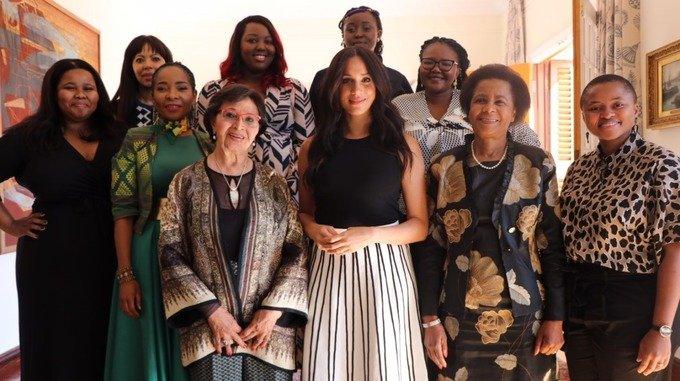
Meghan met guests at an event to honour South Africa's female leaders
The demonstration was recreated in 2006 in protest at South Africa's high rate of domestic violence., external
The Duchess of Sussex's visit, on Thursday, comes as a recent spike in violence against women has again ignited protests in many areas of the country. Approximately 2,700 women and 1,000 children murdered by men in the country last year. At least 100 rapes were also reported daily.
In an post on the Sussexes' official Instagram account, the duchess said Ms Williams-De Bruyn was "a symbol of those who fight for fundamental human rights", adding "for her it is simple - she fights for what is right".

Allow Instagram content?
This article contains content provided by Instagram. We ask for your permission before anything is loaded, as they may be using cookies and other technologies. You may want to read Meta’s Instagram cookie policy, external and privacy policy, external before accepting. To view this content choose ‘accept and continue’.

During the event, Meghan also spoke with the anti-apartheid activist, doctor and former managing director of the World Bank, Mamphela Ramphele.
Also present were politicians Nompendulo Mkhatshwa, of the African National Congress - one of the youngest women ever to serve in the country's parliament - and Lindiwe Mazibuko, the first non-white leader of the Democratic Alliance party.
At the meeting, Meghan said that hearing about their exploits on the news had not been the same as "being able to truly understand what it's like on the ground".
"Much of my life I have been advocating for women and girls' rights, so this has been an incredibly powerful moment to hear first-hand from all of you," she said.
"The leadership and strength shown by these women is remarkable, and at a time when the issue of gender and gender-based violence is at the forefront of people's minds, I hope their voices will resonate and not only give comfort but also create change."
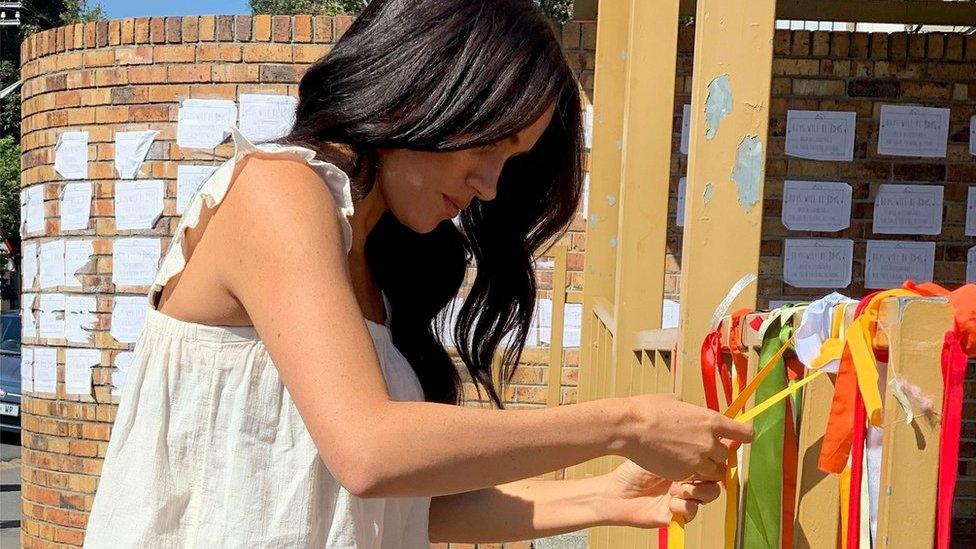
On Saturday, the duchess tied a ribbon at a memorial to a student who was raped and murdered in Cape Town last month
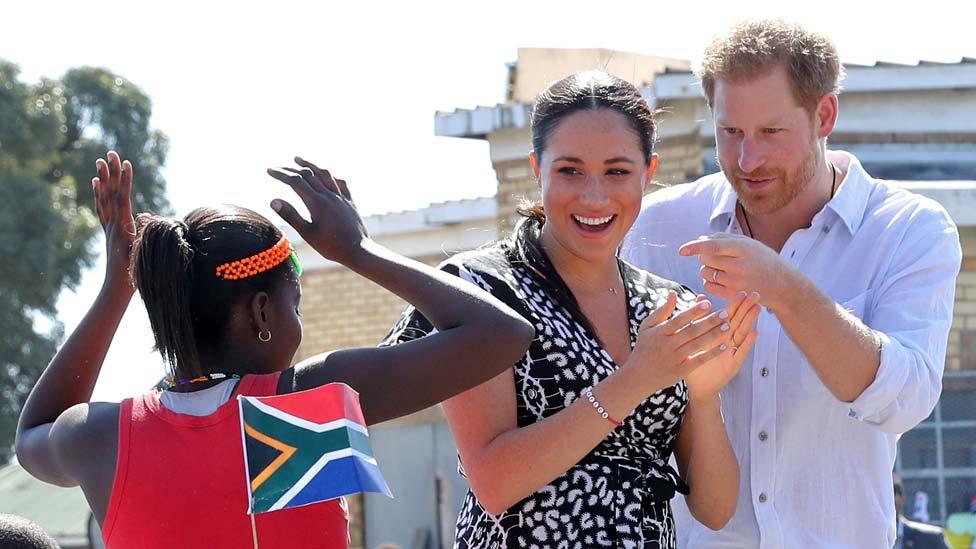
The Duke and Duchess of Sussex visited a project which supports women and children in a Cape Town township on Monday
Meghan added that gender violence was a "global problem" and a solution can only be found "with the attention and work of everyone".
The duke and duchess are on their first official overseas trip with their four month-old son, Archie.
The royals are celebrating southern Africa's people and culture during their 10-day visit.
The duke and duchess spent the first three days together, meeting Archbishop Desmond Tutu, visiting South Africa's oldest mosque and meeting young people in a deprived township in Cape Town.
Archie meets Archbishop
Harry then travelled on to Angola, where he followed in the footsteps of his mother, Diana, Princess of Wales, to highlight continuing efforts to remove landmines.
The duke is visiting Malawi on Sunday, where he is scheduled to meet the country's President Peter Mutharika and pay tribute to a British soldier who was killed by an elephant during a counter-poaching operation earlier this year.
- Published25 September 2019
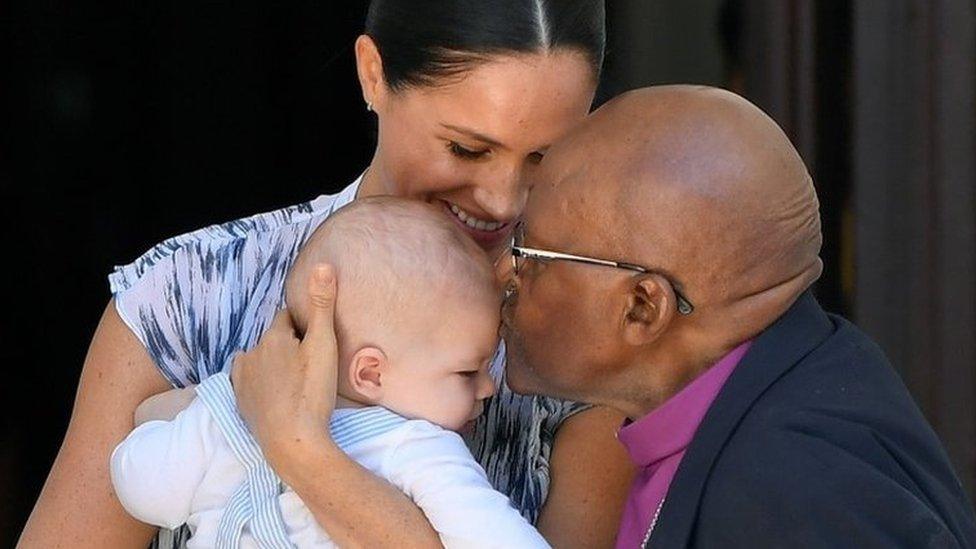
- Published23 September 2019
